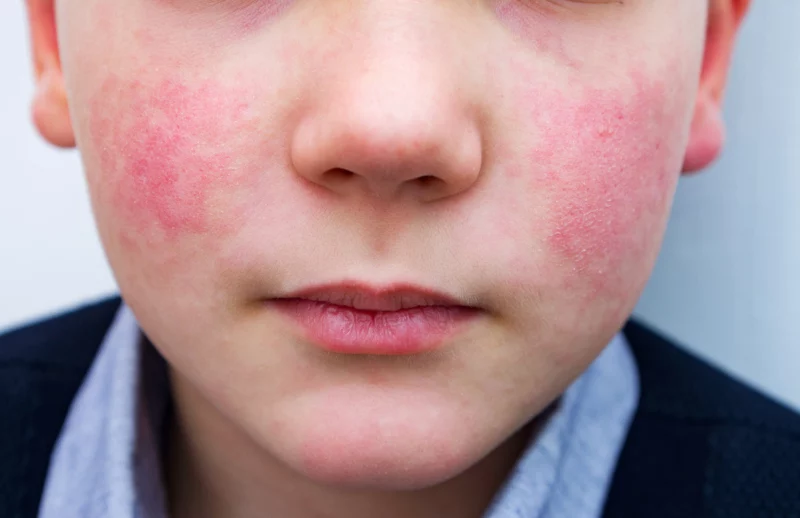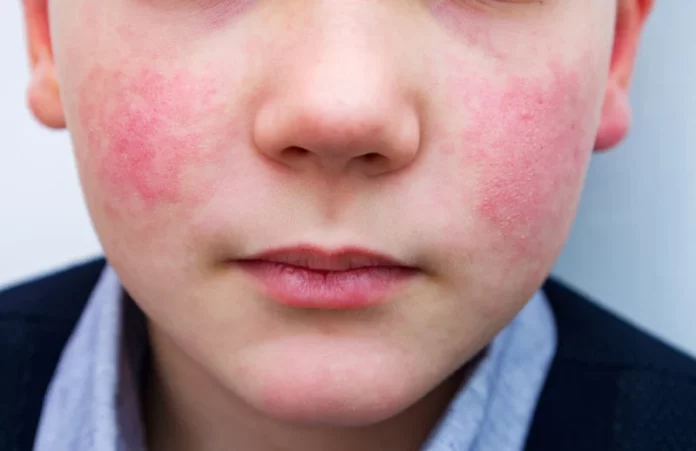
A common seasonal respiratory virus that typically infects school-aged children is causing an unusually large spike in cases across Europe and the US this summer. The surge in transmission is a significant danger to certain vulnerable populations including pregnant people, according to a health alert released by the Centers for Disease Control and Prevention on Tuesday.
The virus is parvovirus B19, aka B19V, which spreads via respiratory droplets and typically causes a mild, two-phased illness in children. The first phase is marked by flu-like symptoms that can include fever, headache, malaise, muscle aches, cough, sore throat, and joint pain. In the second phase, a characteristic "slapped cheek" rash develops, which is also called Fifth Disease or Erythema Infectiosum. By age 20, about 50 percent of people have been infected and have antibodies that can help fight reinfection. And by age 40, the figure rises to 70 percent.
But, for those who have compromised immune systems, are pregnant, or have certain conditions, such as sickle cell anemia, the virus can cause severe complications, such as severe anemia, myocarditis, hepatitis, or encephalitis. In pregnancy, the virus can infect the fetus and cause dangerous complications and miscarriage.
Read 6 remaining paragraphs | Comments
Ars Technica - All contentContinue reading/original-link]




